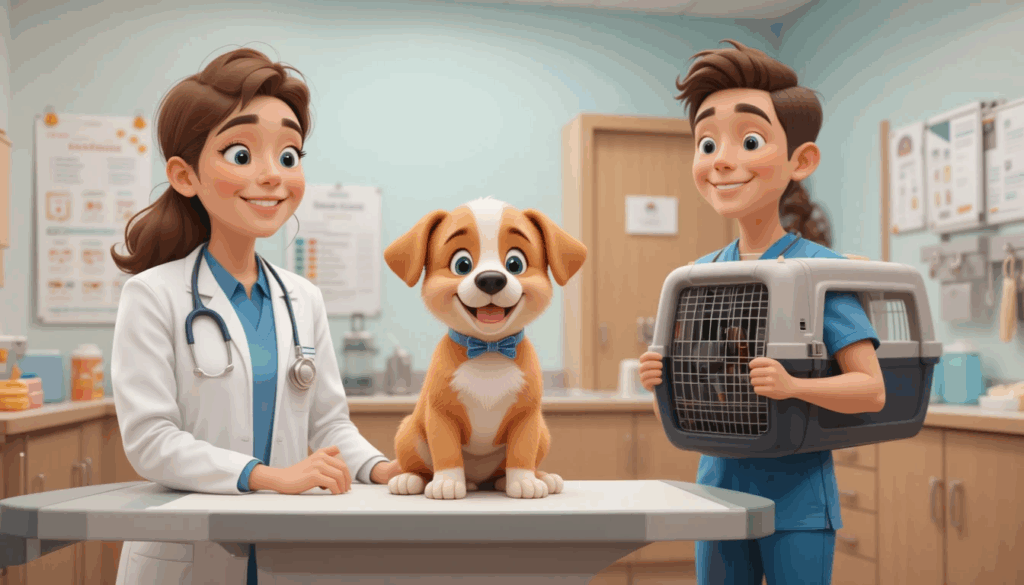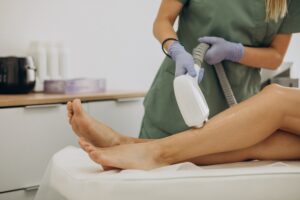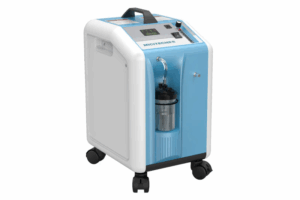Bringing home a new puppy is an exciting milestone, but it also comes with a lot of responsibility. One of the first and most important steps in your puppy’s journey is scheduling their initial checkup at a veterinary clinic. This first visit sets the stage for your puppy’s lifelong health and well-being. If you’re a new pet parent, you might feel a mix of excitement and nervousness about what to expect. Don’t worry—this guide will walk you through every step of your puppy’s first vet visit, so you can feel confident and prepared.
Why Your Puppy’s First Vet Visit Matters
Your puppy’s first vet visit is more than just a routine checkup—it’s a crucial foundation for their future health. Early veterinary care helps identify any underlying health issues, ensures your puppy is protected against common diseases, and gives you the chance to ask questions about their care.
During this visit, your veterinarian will assess your puppy’s overall health, discuss vaccination schedules, and provide guidance on nutrition and behavior. Establishing a relationship with a trusted veterinary clinkc early on also means you’ll have a reliable partner to turn to for advice and support as your puppy grows. This initial appointment is the perfect opportunity to set your puppy up for a happy, healthy life.
Preparing for the Appointment
What to Bring
To make the most of your puppy’s first vet visit, it’s important to come prepared. Here’s a checklist of items to bring:
- Any vaccination or medical records you received from the breeder, shelter, or previous owner
- Adoption or purchase paperwork
- A list of questions or concerns you have about your puppy’s health or behavior
- A fresh stool sample (if possible) for parasite testing
- A secure leash, harness, or carrier to keep your puppy safe during transport
Having these items ready will help your veterinarian get a complete picture of your puppy’s health and make the appointment run smoothly.
How to Help Your Puppy Feel Comfortable
Vet visits can be overwhelming for puppies, especially if it’s their first time away from home. To help your puppy feel more at ease:
- Bring a favorite blanket or toy for comfort
- Offer treats as positive reinforcement before, during, and after the visit
- Speak in a calm, reassuring voice
- Avoid feeding your puppy a large meal right before the appointment to prevent car sickness
Taking these steps can help reduce your puppy’s anxiety and make the experience more positive for both of you.
What Happens During the First Visit?
Initial Health Assessment
When you arrive at the veterinary clinkc, the staff will welcome you and your puppy. The veterinarian will start with a thorough physical examination, checking your puppy’s weight, temperature, heart, lungs, eyes, ears, teeth, skin, and coat. This assessment helps identify any signs of illness or congenital issues that may need attention.
Vaccinations and Preventive Care
One of the main goals of the first visit is to begin your puppy’s vaccination schedule. Core vaccines protect against serious diseases like parvovirus, distemper, hepatitis, and rabies. Your vet will explain which vaccines are needed and when to schedule follow-up doses. In addition to vaccines, your puppy may receive deworming medication and recommendations for flea and tick prevention.
Discussion of Diet and Nutrition
Proper nutrition is essential for your puppy’s growth and development. Your veterinarian will discuss the best type of food for your puppy’s breed, age, and size. You’ll get advice on feeding schedules, portion sizes, and how to transition to adult food as your puppy matures.
Behavioral and Socialization Advice
Early socialization and training are key to raising a well-adjusted dog. Your vet can offer tips on crate training, housebreaking, and introducing your puppy to new people and environments. If you have concerns about biting, chewing, or other behaviors, this is a great time to ask for guidance.
Common Questions Puppy Owners Ask
It’s natural to have questions during your puppy’s first vet visit. Here are some of the most frequently asked questions and their answers:
1. When should my puppy get their next round of vaccines?
Most puppies need a series of vaccines every 3–4 weeks until they’re about 16 weeks old. Your vet will provide a personalized schedule.
Most puppies need a series of vaccines every 3–4 weeks until they’re about 16 weeks old. Your vet will provide a personalized schedule.
2. When is the right time to spay or neuter my puppy?
The ideal age varies by breed and size, but many vets recommend spaying or neutering between 6–12 months. Your vet will discuss the best timing for your puppy.
The ideal age varies by breed and size, but many vets recommend spaying or neutering between 6–12 months. Your vet will discuss the best timing for your puppy.
3. Should I microchip my puppy?
Microchipping is a safe and effective way to help reunite lost pets with their owners. Your vet can perform this quick procedure during a routine visit.
Microchipping is a safe and effective way to help reunite lost pets with their owners. Your vet can perform this quick procedure during a routine visit.
4. How do I prevent fleas, ticks, and worms?
Your vet will recommend preventive medications based on your puppy’s age, weight, and lifestyle. Consistent use of these products is key to keeping your puppy healthy.
Your vet will recommend preventive medications based on your puppy’s age, weight, and lifestyle. Consistent use of these products is key to keeping your puppy healthy.
5. What should I do if my puppy has diarrhea or vomits after the visit?
Mild side effects can occur after vaccinations, but if symptoms persist or worsen, contact your vet for advice.
Mild side effects can occur after vaccinations, but if symptoms persist or worsen, contact your vet for advice.
6. How often should I bring my puppy to the vet?
Puppies need several visits during their first year for vaccines and checkups. After that, annual wellness exams are recommended.
Puppies need several visits during their first year for vaccines and checkups. After that, annual wellness exams are recommended.
7. What are the signs of illness I should watch for at home?
Watch for changes in appetite, energy, stool, or behavior. If you notice anything unusual, reach out to your vet promptly.
Watch for changes in appetite, energy, stool, or behavior. If you notice anything unusual, reach out to your vet promptly.
Also Read: Profhilo Treatment in Dubai
After the Visit: Next Steps for Puppy Care
Once your puppy’s first vet visit is complete, you’ll receive a summary of the appointment and a schedule for upcoming vaccines and checkups. Here’s what to do next:
- Monitor your puppy: Watch for any side effects from vaccines, such as mild swelling or lethargy. Most reactions are minor and resolve quickly.
- Follow your vet’s advice: Stick to the recommended feeding, training, and medication routines.
- Schedule follow-up appointments: Mark your calendar for the next round of vaccines and wellness checks.
- Continue socialization: Expose your puppy to new experiences, people, and other pets in a safe, controlled manner.
Staying proactive with your puppy’s care will help them grow into a healthy, happy adult dog.
Tips for Building a Positive Relationship with Your Veterinary Clinic
A strong relationship with your veterinary clinkc benefits both you and your puppy. Here’s how to make the most of your partnership:
- Communicate openly: Share any concerns or observations about your puppy’s health or behavior.
- Keep records: Maintain a folder with your puppy’s medical history, vaccine dates, and vet contact information.
- Schedule regular checkups: Routine visits help catch health issues early and keep your puppy on track with preventive care.
- Make visits enjoyable: Bring treats and praise your puppy for good behavior at the clinic.
By working together with your vet, you’ll ensure your puppy receives the best possible care throughout their life.
Conclusion
Your puppy’s first visit to the veterinary clinic is a vital step in their journey to lifelong health. By preparing ahead, asking questions, and following your vet’s guidance, you’ll set your puppy up for a happy, healthy future. Remember, your veterinary team is there to support you every step of the way—don’t hesitate to reach out whenever you need advice or reassurance.






